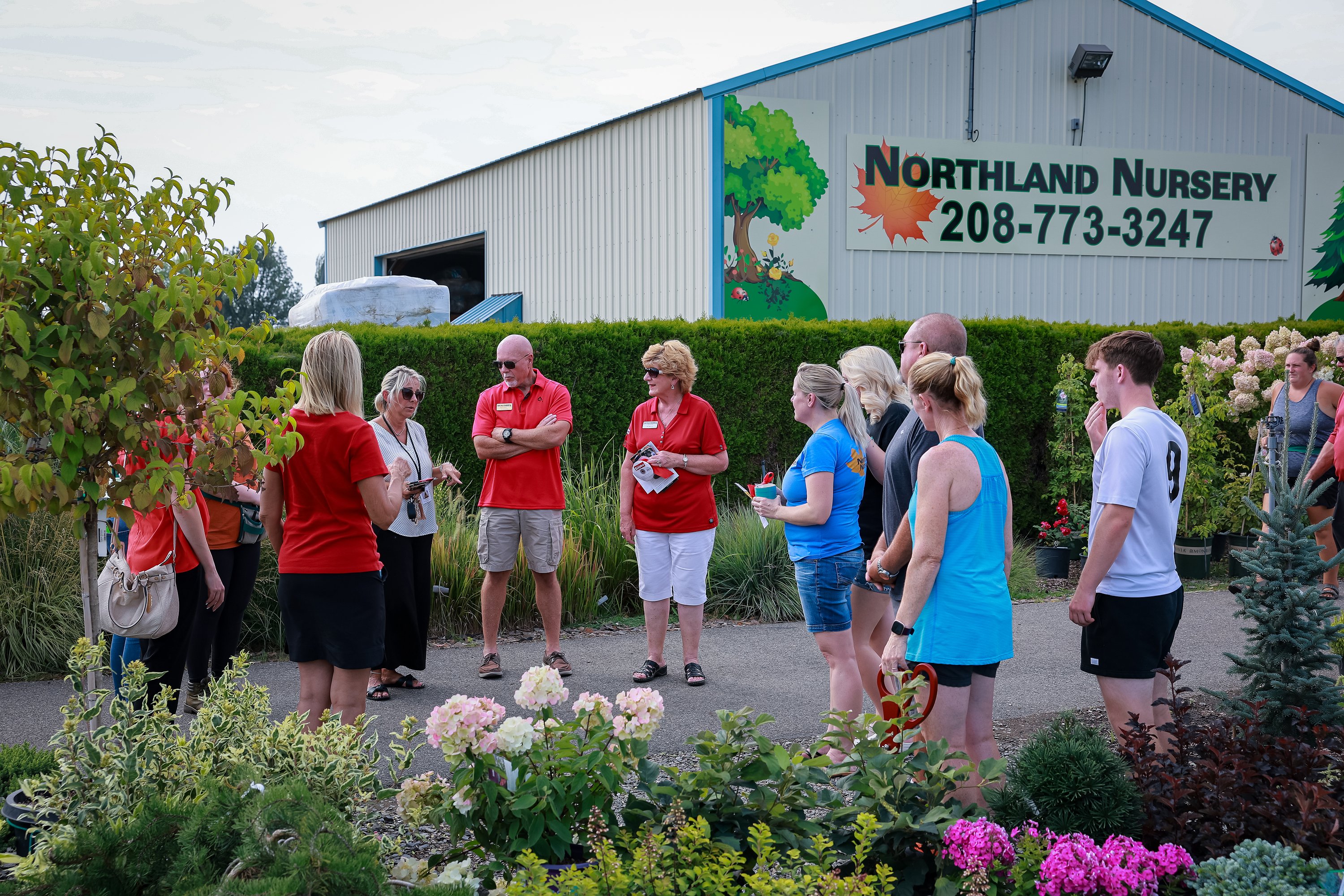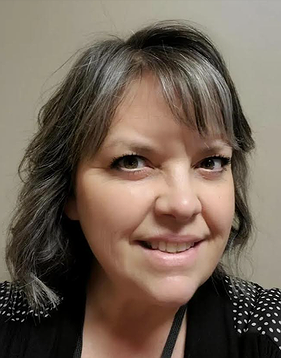Big benefits from small businesses

Shop Associate Jodi Bodi, left, and customer Mindy Cameron celebrate Eve’s Leaves' 45th anniversary of doing business in downtown Sandpoint on May 11. Small businesses such as Eve's Leaves contribute to the vitality of North Idaho's communities.
From brew pubs in Post Falls to boutiques on Sandpoint's historic First Avenue and all the way to the Center of the Universe in Wallace, small businesses reap huge rewards for their communities.
"Small businesses are the heartbeat of Sandpoint," said Mickey Quinn, executive director of the Greater Sandpoint Chamber of Commerce.
She said in the quaint corner of the Gem State where charming, picturesque Sandpoint is located, friendly communities and small businesses thrive.
"Small businesses aren't just entities that exist — they are the lifeblood of the local economy and the heartbeat of community vitality," she said. "Sandpoint’s economy is woven intricately with the fabric of its small businesses. These enterprises span various sectors, from boutique shops and cozy cafes to innovative global tech startups, artisanal crafters and nationally distributed consumer foods. Collectively, they contribute significantly to employment, entrepreneurship and economic stability in the region."
Small businesses are just that — shops, companies and businesses that are owned and operated by families, moms and pops and locals, rather than national big box retailers or multi-million-dollar corporations. They typically have smaller staff sizes of 50 or fewer employees.
One of the primary roles small businesses play is job creation, Quinn said.
"In a town where personal connections and local support matter, these enterprises often prioritize hiring from within the community," she said. "This not only reduces unemployment, but also fosters a sense of belonging and loyalty among residents."
Small businesses are key contributors to the local tax base as well, Quinn said.
"The revenue generated from these enterprises supports essential public services such as schools, infrastructure, maintenance and community programs," she said. "This self-sufficiency is crucial for Sandpoint's sustainable development and quality of life."
Post Falls Chamber of Commerce President and CEO Christina Petit said small businesses are economically crucial to not only Post Falls, but to the North Idaho region in general.
"The employment opportunities they create keep money circulating within the community," Petit said. "The businesses are run by our citizens and they reflect our local culture and they contribute to our sense of community identity and pride."
In the River City, those who work at smaller businesses often know their customers by name, tailoring their services and products to meet local needs and preferences. This high level of personal service fosters customer loyalty and creates a close-knit community atmosphere, Petit said.
"Their involvement in local affairs, from sponsoring youth sports teams to organizing community events, also helps to foster a sense of community and belonging," Petit said. "By sourcing goods and services locally, small businesses in Post Falls help to sustain other local businesses, creating a supportive business network that benefits the entire local economy. This interconnectedness helps stabilize the local market and reduces economic leakage, where money spent leaves the community."
Historic Wallace Chamber of Commerce Executive Director Julie George said small businesses are some of the major employers in her town, where tourism plays a crucial role in the business and nonprofit communities.
"When residents and visitors spend money at small businesses, a larger portion of those earnings tends to stay within the community and supports other businesses and services in the area," George said. "Many of our small businesses specialize in niche markets and offer unique products and services that larger businesses may overlook. Our business owners often participate in local initiatives, sponsor events and support local causes. These types of things build a community network and partnership that we take pride in."
The Wallace Visitor Center serves over 30,000 visitors a year and those visitors want to experience what Wallace has to offer, George said.
"So maybe in some ways, we still are the last stop light on I-90," she said. "The small business keeps the fabric of exploring Wallace alive."
Wallace's small businesses have learned to innovate and are more resilient during economic swings compared to larger corporations, George said.
"Their smaller size can initiate lower overhead costs and lend to greater flexibility to adapt to changing conditions and this helps to stabilize the local economy during challenging times," she said, adding that Wallace's small businesses and many of its nonprofits survive because of their resilience, stamina and ability to flex when needed.
"They plan ahead for the variables that come their way," she said.
Wallace's visitors enjoy stepping back in time at the town's four museums, taking mining tours, staying at comfortable “historic” but updated hotels, stopping in at historic taverns and dining at local eateries.
Recreation such as hiking, biking, ATV riding, camping and fishing are also popular in Wallace and the surrounding area, contributing to the Silver Valley economy.
"We are knitted into the connection with Trail of the Coeur d'Alenes, the Route of the Hiawatha Scenic Trail, Dobson Pass, the gateway to the North Fork of the Coeur d'Alene River and the Pulaski Tunnel Trail with Moon Pass," George said. "This sustains our restaurants and bars, lodging, stores, bike and ATV rentals, service-based businesses and all the other attractions we offer."
Beyond economic impacts, Quinn said small businesses serve as vital community hubs. They are more than just places to buy goods or services; they are gathering spots where neighbors meet, friendships blossom and ideas are exchanged, she said.
"Sandpoint businesses often sponsor events, festivals and charitable initiatives, further strengthening their bond with the community," Quinn said. "Whether it's a farmers' market showcasing local produce or a bookstore hosting author readings, these activities enrich the cultural tapestry of Sandpoint and create memorable experiences for residents and visitors alike."
She said Sandpoint's reliance on small businesses is a year-round partnership.
"During the winter months, when tourism slows down, many local businesses pivot their offerings to cater to residents, offering special promotions, events and seasonal products," she said. "In turn, the Sandpoint community reciprocates by patronizing these businesses, fostering a symbiotic relationship built on mutual support and trust."
Sandpoint businesses have demonstrated remarkable resilience, weathering challenges such as economic downturns, changing consumer preferences and pulling together to make it through a tough winter season when the snow has been less than stellar and the volume of skiers visiting the area is down, Quinn said.
"Small businesses in Sandpoint also drive innovation and diversity," she said. "From artisans crafting unique handmade goods to tech startups developing cutting-edge solutions, these enterprises inject creativity and variety into the local marketplace. This diversity not only enhances consumer choice but also promotes healthy competition and continuous improvement among businesses."
Petit said small businesses are the backbone of economies around the world.
"A healthy mix of small and large businesses helps protect the economy from significant impacts if large businesses falter," she said. "This diversification ensures that economic activity can continue, even in challenging times."
She said small businesses tend to have smaller carbon footprints compared to large companies.
"They often utilize local materials and produce less waste, contributing to environmental sustainability," she said. "Their scale often allows for more sustainable practices that can be more difficult to implement on a larger scale."
Supporting small businesses not only contributes to economic health and community well-being, but also supports a sustainable and inclusive economic model that benefits everyone, Petit said.
"Encouraging local purchasing and investing in small businesses can have profound and lasting impacts on both local and global scales," she said.
 Members of the Post Falls Chamber of Commerce and community members gather at Northland Nursery in Post Falls. "Supporting small businesses not only contributes to economic health and community well-being but also supports a sustainable and inclusive economic model that benefits everyone," Post Falls Chamber President and CEO Christina Petit said.
Members of the Post Falls Chamber of Commerce and community members gather at Northland Nursery in Post Falls. "Supporting small businesses not only contributes to economic health and community well-being but also supports a sustainable and inclusive economic model that benefits everyone," Post Falls Chamber President and CEO Christina Petit said.












